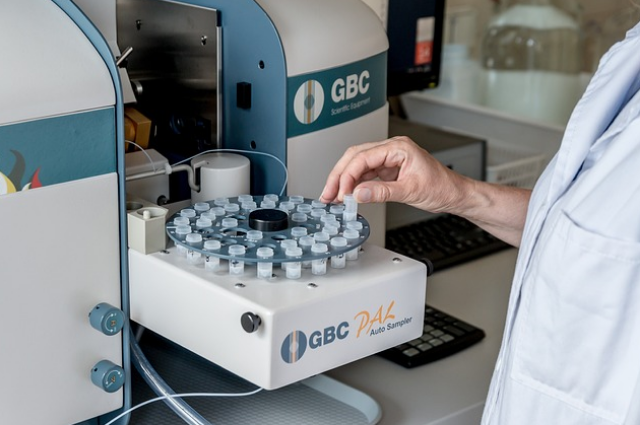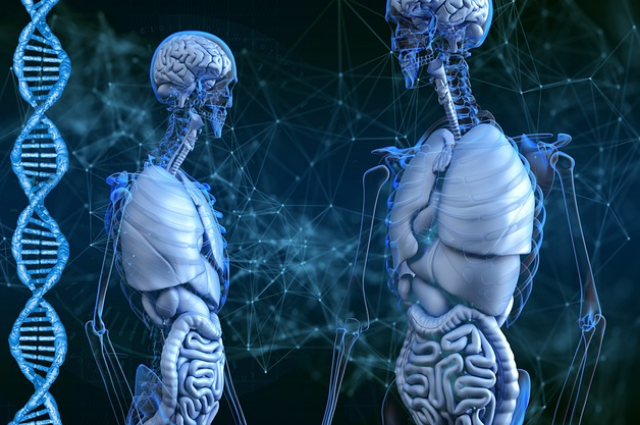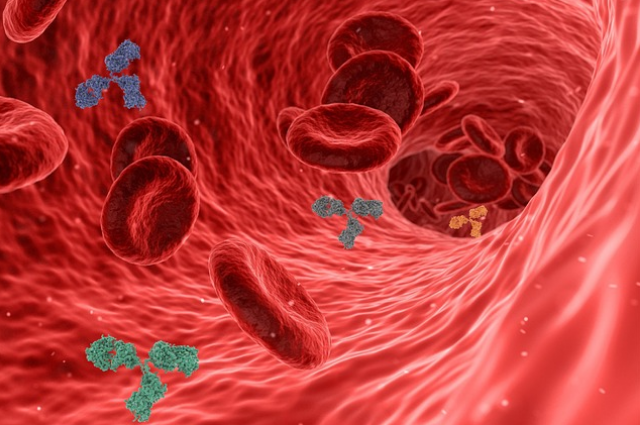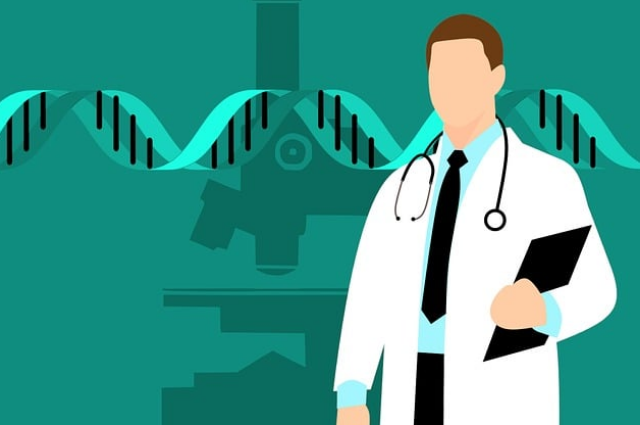
Image by Arek Socha from Pixabay
Introduction
In recent years, genetic engineering and gene editing have emerged as powerful tools for manipulating the genetic code of living organisms. These technologies have the potential to revolutionize fields such as medicine, agriculture, and biotechnology. They offer the possibility of curing genetic diseases, improving crop yields, and even creating entirely new forms of life. However, with these exciting opportunities come significant ethical implications. The ability to modify the genetic makeup of living organisms raises complex questions about the limits of human intervention in nature, the potential for unintended consequences, and the distribution of benefits and risks. It also raises issues around informed consent, justice, and access to these technologies.
This article will explore the ethical implications of genetic engineering and gene editing from a multidisciplinary perspective. We will examine the historical and philosophical roots of these technologies and their impact on social, cultural, legal, and religious contexts. We will also explore the potential risks and benefits of these technologies, the ethical dilemmas they present, and the implications for our future as a society. It is our hope that this work will contribute to an ongoing dialogue around genetic engineering and gene editing, helping to shape responsible policies and practices that maximize the benefits of these technologies while minimizing their risks and harms.
Historical and philosophical perspectives on genetic engineering
The development of genetic engineering and gene editing did not occur in a vacuum but is rooted in the history of scientific discovery and technological advancement. The study of genetics began in the mid-19th century with the work of Gregor Mendel, an Augustinian monk who discovered the fundamental principles of genetic inheritance through his experiments with pea plants. In the decades that followed, advances in molecular biology, such as the discovery of the structure of DNA by James Watson and Francis Crick in 1953, paved the way for the development of genetic engineering. In 1972, the first successful genetic modification was performed by Stanley Cohen and Herbert Boyer, who inserted a bacterial gene into the DNA of another organism.
The philosophical implications of genetic engineering are complex and have been the subject of much debate. One major philosophical framework for thinking about genetic engineering is consequentialism, which evaluates the morality of an action based on its consequences. From this perspective, genetic engineering and gene editing can be seen as morally good if they produce desirable outcomes, such as curing genetic diseases.
Another philosophical framework for thinking about genetic engineering is deontology
which emphasizes the moral principles that guide human action. From a deontological perspective, genetic engineering and gene editing can be evaluated based on whether they respect the inherent dignity and autonomy of living organisms. Virtue ethics emphasizes the importance of character and the cultivation of moral virtues in evaluating human action. From this perspective, genetic engineering and gene editing can be evaluated based on whether they foster virtues such as responsibility, respect, and care.

Image by Michal Jarmoluk from Pixabay
These philosophical frameworks provide a useful starting point for thinking about the ethical implications of genetic engineering and gene editing. However, they are not the only frameworks that can be applied. Here, we will explore a range of ethical perspectives and considerations that are relevant to these technologies.
Ethical issues in genetic engineering and gene editing
As genetic engineering and gene editing become more advanced and widespread, they raise a range of ethical issues that must be considered. Here, we will explore some of the most pressing ethical issues related to these technologies.
- Autonomy and Informed Consent
One of the most fundamental ethical issues related to genetic engineering and gene editing is autonomy and informed consent. Individuals have a right to make decisions about their genetic makeup, and any interventions must be made with their informed consent. This raises questions about how to ensure that individuals are fully informed about the potential risks and benefits of genetic engineering and gene editing and whether they have the ability to give free and informed consent.
- Justice and Fairness in Access to Genetic Engineering and Gene Editing
Another key ethical issue is justice and fairness in access to genetic engineering and gene editing. These technologies have the potential to exacerbate existing social and economic inequalities, and it is important to ensure that they are not only available to those who can afford them. There is also a need to consider the global implications of genetic engineering and gene editing and how they might impact vulnerable populations in different parts of the world.
- The Potential for Discrimination and Stigmatization
Genetic engineering and gene editing also raise concerns about discrimination and stigmatization. The ability to modify the genetic makeup of individuals and populations raises questions about how these modifications might be used to discriminate against certain groups or perpetuate existing forms of discrimination. It is important to consider the potential implications of these technologies for marginalized communities and to ensure that they are used in ways that do not exacerbate existing inequalities.
- The Impact on Biodiversity and the Environment
Finally, genetic engineering and gene editing raise important questions about the impact on biodiversity and the environment. These technologies have the potential to alter ecosystems and disrupt natural processes, and it is important to consider the potential risks and unintended consequences of these interventions.
Overall, genetic engineering and gene editing raise a range of complex ethical issues that must be carefully considered. It is essential to engage in ongoing dialogue and reflection to ensure that these technologies are used in responsible and ethical ways that maximize benefits while minimizing harm.
Risks and Benefits of Genetic Engineering and Gene Editing
As with any new technology, genetic engineering and gene editing have the potential to bring about both benefits and risks. The potential benefits and risks are;
- Benefits of Genetic Engineering and Gene Editing
One of the most significant potential benefits of genetic engineering and gene editing is the ability to cure genetic diseases. These technologies could potentially eliminate inherited diseases such as sickle cell anemia, cystic fibrosis, and Huntington's disease by correcting the underlying genetic mutations. Genetic engineering and gene editing also have the potential to improve agricultural yields, produce more nutritious crops, and even create new medicines.
Another potential benefit of these technologies is their ability to enhance human performance. For example, genetic engineering and gene editing could be used to enhance cognitive abilities or athletic performance. While there is significant controversy surrounding the use of these technologies for human enhancement, some argue that they could lead to improvements in human well-being and quality of life.

Image by Victoria_Regen from Pixabay
- Risks of Genetic Engineering and Gene Editing
One of the most significant potential risks of genetic engineering and gene editing is the potential for unintended consequences. For example, genetic modifications intended to cure disease could have unforeseen effects on other aspects of an individual's health or future generations. There is also the potential for unintended ecological consequences if genetically modified organisms are released into the environment. Another potential risk of these technologies is the potential for social and economic inequalities to be exacerbated. If genetic engineering and gene editing are only available to those who can afford them, this could further entrench existing inequalities and create new forms of disadvantage. Genetic engineering and gene editing raise important ethical questions about the meaning of human nature and our relationship to the natural world. Some argue that these technologies represent a dangerous departure from the natural order, while others argue that they represent a new stage in human evolution.
Regulatory and Policy Considerations for Genetic Engineering and Gene Editing
As genetic engineering and gene editing technologies continue to advance, it is essential to establish appropriate regulatory and policy frameworks to ensure that they are used in safe and ethical ways. Some of the key regulatory and policy considerations for these technologies are:
- Regulatory Frameworks for Genetic Engineering and Gene Editing
One of the primary challenges in regulating genetic engineering and gene editing is the pace of technological change. New advances in these technologies are constantly emerging, and it can be difficult for regulatory frameworks to keep up. However, it is essential to establish appropriate regulatory frameworks to ensure that these technologies are used in ways that are safe and ethical. In the United States, genetic engineering and gene editing are regulated primarily by the FDA, the USDA, and the EPA, depending on the specific application. In the European Union, these technologies are regulated by the European Food Safety Authority (EFSA) and the European Medicines Agency (EMA), among others. However, there is an ongoing debate about whether these regulatory frameworks are sufficient to address the potential risks and ethical concerns related to these technologies.

Image by swiftsciencewriting from Pixabay
- Policy Considerations for Genetic Engineering and Gene Editing
In addition to regulatory frameworks, there are also important policy considerations related to genetic engineering and gene editing. For example, there is a need to consider how these technologies will impact employment and the workforce, and how to ensure that the benefits are distributed fairly across society. There is also a need to consider the potential impact of these technologies on intellectual property rights and access to scientific research. Another key policy consideration is the global implications of genetic engineering and gene editing. It is important to consider how these technologies might impact vulnerable populations in different parts of the world and to ensure that they are not used to perpetuate existing forms of economic and social inequality. It is essential to engage in ongoing dialogue and reflection about the appropriate uses and applications of genetic engineering and gene editing. This requires input from a range of stakeholders, including scientists, policymakers, ethicists, and the general public. There are a range of regulatory and policy considerations related to genetic engineering and gene editing. It is essential to establish appropriate frameworks to ensure that these technologies are used in ways that are safe, ethical, and socially responsible.
Ethical Reflections on Genetic Engineering and Gene Editing
Here, we will reflect on some of the ethical considerations raised by genetic engineering and gene editing. These technologies raise a range of complex ethical questions, including questions about the nature of human identity, the limits of scientific knowledge, and the relationship between humans and the natural world.
- Human Identity and Dignity
One of the most fundamental ethical questions raised by genetic engineering and gene editing is the question of human identity and dignity. Some argue that these technologies represent a violation of human dignity by reducing human beings to mere objects of scientific experimentation. Others argue that these technologies represent an extension of human agency and a way to enhance human dignity by overcoming limitations imposed by genetic chance. A related ethical question is the potential impact of these technologies on human diversity. If genetic engineering and gene editing become widely available, will this lead to a homogenization of the human species, erasing important cultural and biological differences? Alternatively, could these technologies be used to further entrench existing forms of social and economic inequality, by creating new forms of genetic advantage?
- The Limits of Scientific Knowledge
Another ethical consideration raised by genetic engineering and gene editing is the limits of scientific knowledge. While these technologies offer the potential to cure diseases and improve human performance, there is still much that is unknown about the complexity of human biology and the potential unintended consequences of genetic modifications. As a result, there is a risk of overconfidence in our ability to control and manipulate biological systems, leading to unforeseen risks and consequences.

Image by Mohamed Hassan from Pixabay
- Relationship to the Natural World
Finally, genetic engineering and gene editing raise important ethical questions about our relationship to the natural world. Some argue that these technologies represent a dangerous attempt to exert control over the natural order, with unpredictable consequences. Others argue that these technologies represent a way to better understand and appreciate the complexity and diversity of the natural world and to use this knowledge for the benefit of all. Genetic engineering and gene editing raise important ethical questions that challenge us to reflect on the nature of human identity, the limits of scientific knowledge, and our relationship to the natural world.
The Future Ahead
The pace of technological change in genetic engineering and gene editing is likely to continue to accelerate in the coming years. One of the most promising areas of research is the use of gene editing to cure or prevent genetic diseases, such as sickle cell anemia or cystic fibrosis. There is also increasing interest in using these technologies to create "designer babies," with specific traits selected or modified to the parents' preferences.
Another area of research is the use of gene editing to enhance human performance, such as improving memory or physical strength. However, these applications raise important ethical questions about the potential creation of a genetic "elite," with enhanced abilities that exacerbate existing social and economic inequalities.
- Social and Ethical Implications
The increasing availability and accessibility of genetic engineering and gene editing technologies raise a range of important social and ethical implications. For example, there is a need to ensure that these technologies are accessible to all, regardless of socio-economic status or geographic location. There is also a need to consider how these technologies might impact the autonomy and privacy of individuals and their families, particularly in cases where genetic information is shared with employers or insurers.
Another important consideration is the potential impact of these technologies on the natural environment. As genetic engineering and gene editing are increasingly applied to agricultural crops and livestock, there is a risk of unintended consequences, such as the spread of genetically modified organisms or the creation of new forms of antibiotic resistant bacteria.
Conclusion
Genetic engineering and gene editing represent a rapidly evolving field with significant implications for human health, identity, and society. It is essential to engage in ongoing dialogue and reflection about the appropriate uses and applications of these technologies, as well as the potential risks and ethical concerns they raise. As we continue to push the boundaries of what is possible, we must ensure that we are doing so in ways that are safe, ethical, and socially responsible. One of the most pressing issues surrounding genetic engineering and gene editing is the development of appropriate regulatory frameworks. Governments and international organizations must balance the need for innovation and progress with concerns about safety, equity, and public accountability. The development of international guidelines and standards can help ensure that these technologies are developed and applied responsibly and transparently.

Another important consideration is the issue of intellectual property rights. As genetic engineering and gene editing become more commercially viable, there is a risk of monopolies and the concentration of power in the hands of a few companies or individuals. It is essential to consider how to ensure that the benefits of these technologies are shared equitably and that they are accessible to all who could benefit from them. The public should also be given an important role in ongoing dialogue and participation regarding the development and deployment of genetic engineering and gene editing technologies. This includes ensuring that public concerns are heard and addressed, as well as providing opportunities for meaningful public input into the development of regulatory frameworks.
In short, the policy and governance frameworks surrounding genetic engineering and gene editing are complex and multifaceted. It is essential to consider the legal, ethical, and social implications of these technologies and to develop appropriate regulatory frameworks that balance the need for innovation with concerns about safety, equity, and public accountability. By engaging in ongoing dialogue and participation, we can ensure that these technologies are developed and deployed in a manner that is safe, ethical, and socially responsible.

